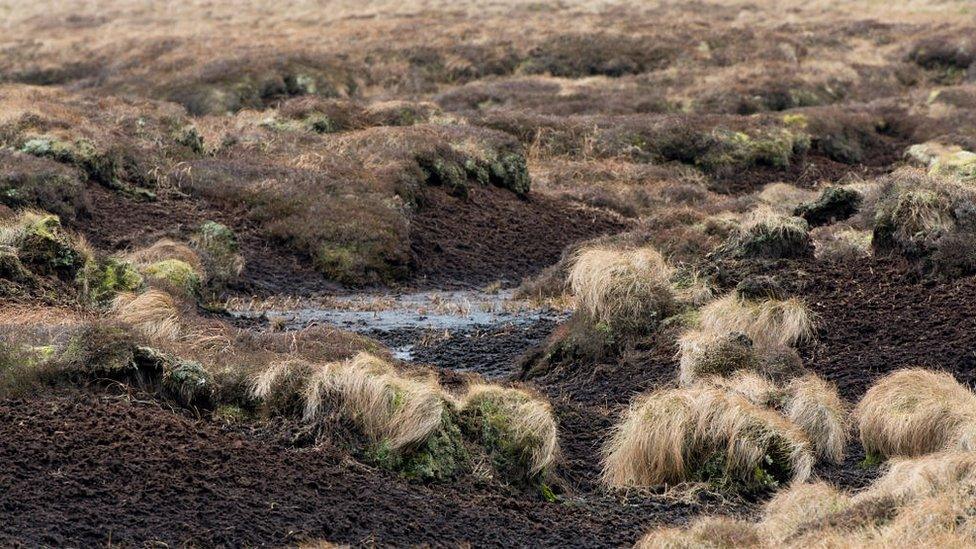Winter Hill: Peat restoration accelerates 'moonscape' moor's recovery
- Published
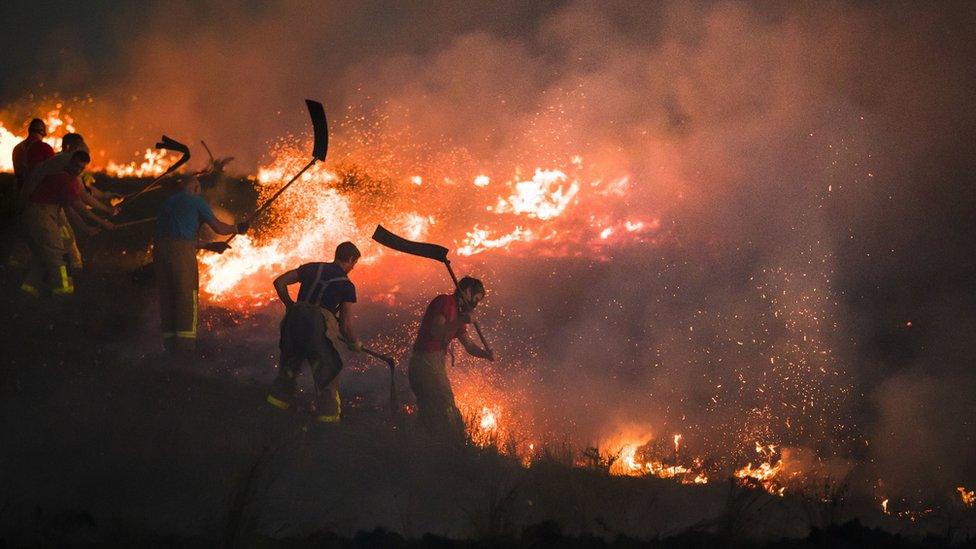
It took 42 days to extinguish the 2018 fire
A scheme to restore moorland left resembling a "moonscape" after a huge fire is expected to speed up its recovery, officials have said.
The land around Winter Hill, near Bolton, was scorched by a blaze which burned for 42 days in 2018.
The Woodland Trust said it may take "decades" to restore the peatland.
The charity hopes the Moor Carbon project, which has received an extra £652,000 from the government, could "reduce this recovery time".
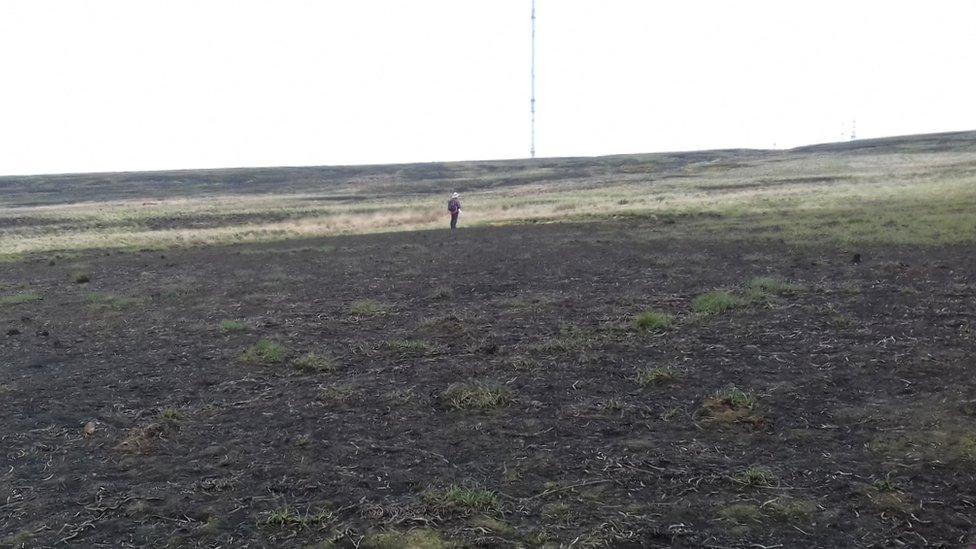
The area around the Winter Hill transmitter has been likened to a "moonscape"
While signs of life emerged in 2019 with the appearance of cotton grass, a third of the Smithills Estate - which includes the Winter Hill transmitter - was damaged by the blaze, leaving "blackened, bare and carbon-rich peat", a spokeswoman said.
Restoration will include the planting of sphagnum moss and boosting the natural re-growth of other moorland plants.
The Woodland Trust said drainage channels will be blocked to make the moors wet again, helping to stop carbon-rich peat being carried off the hills by rainwater.
Tracey Garrett, head of the trust's team at the site, added that the Moor Carbon project would lower soil acidity.
"Here at Smithills we have a precious landscape in terms of the region's battle against climate change.
"A healthy, living, breathing peatland is one of the most effective habitats for soaking up harmful carbon."
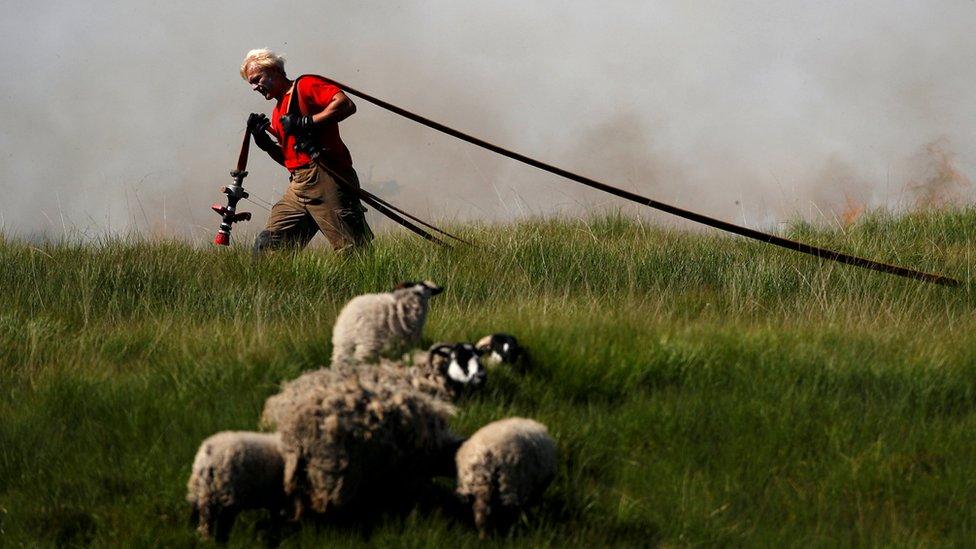
The 2018 fire harmed local air quality as well as the landscape
Matt Scott-Campbell, from the Moors for the Future Partnership, added: "Rather than being a natural carbon store, peatlands - when degraded and damaged - are a major source of carbon emissions both in the UK and globally."
In 2020, the countryside charity CPRE warned that emissions from UK peatland could cancel out carbon reduction by forests.
It is estimated there are over three billion tonnes of carbon stored in UK peatlands - equivalent to the carbon stored in all of the forests in the UK, Germany and France.
While it is believed that both forestry and peat should be enhanced, it is considered that the best value lies with improving peat.
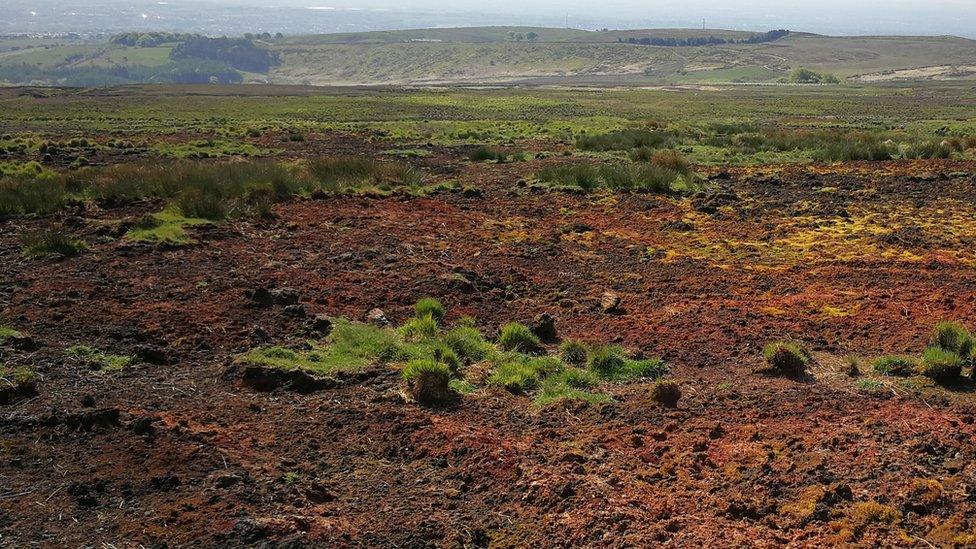
Winter Hill offers scenic views of Lancashire and Greater Manchester
Mr Scott-Campbell said the Moor Carbon project "focuses on prioritising the carbon capture potential of the Peak District and South Pennine moors, which are some of the most degraded uplands in Europe".
The organisation has been restoring blanket bogs in the area for nearly 20 years, saying they can reduce the risk of wildfire, improve water quality and provide natural flood management.
The restoration work is expected to continue until March.

Why not follow BBC North West on Facebook, external, Twitter, external and Instagram, external? You can also send story ideas to northwest.newsonline@bbc.co.uk, external
- Published8 August 2018
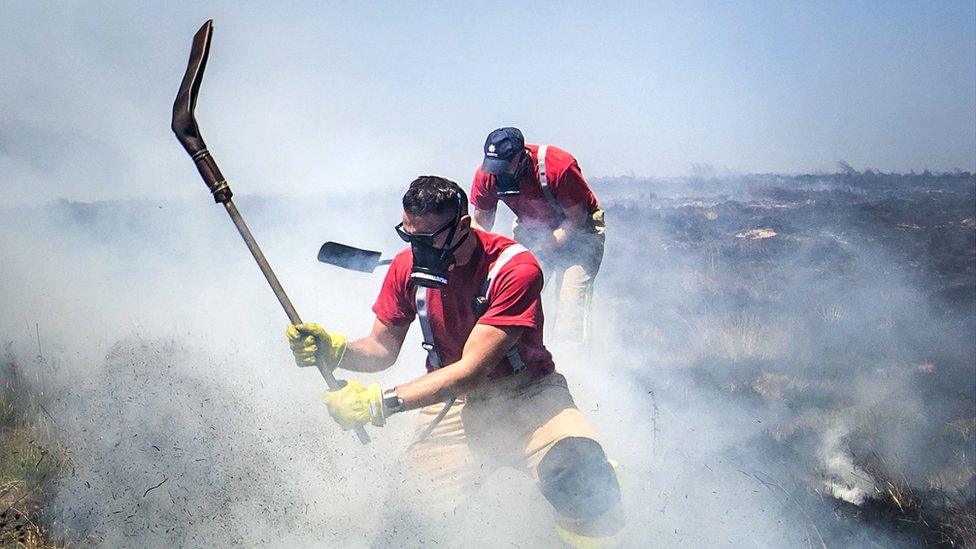
- Published22 July 2019
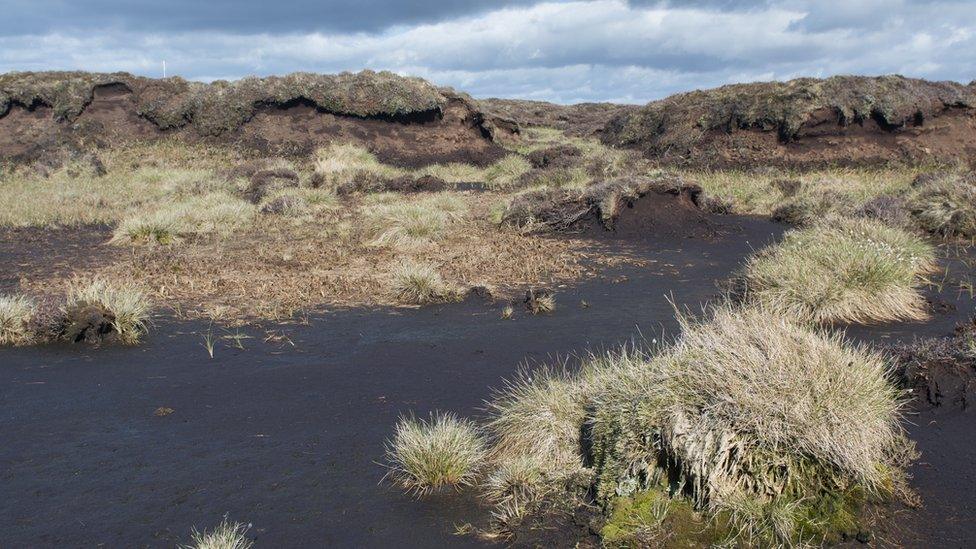
- Published7 August 2020
